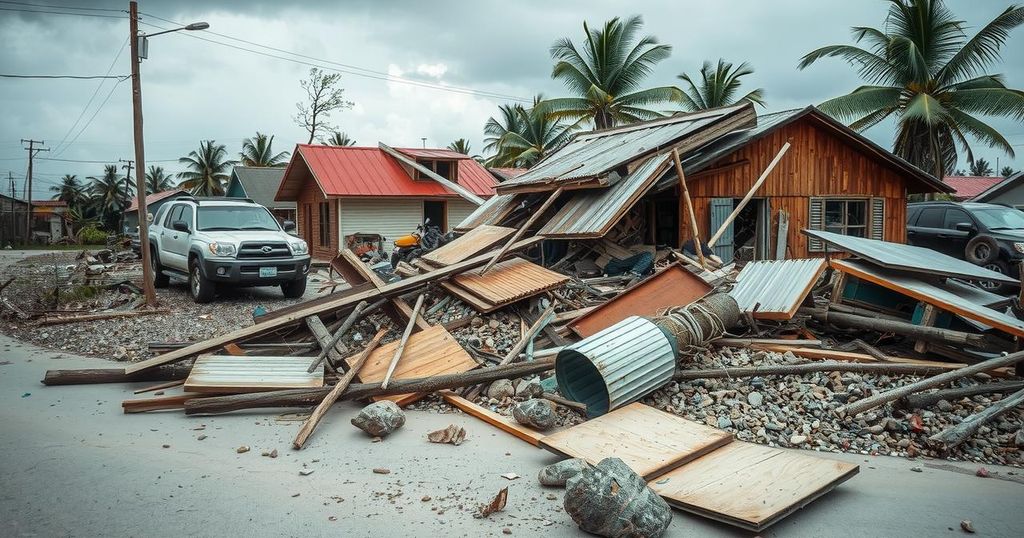Cyclone Chido’s Devastating Impact in Mozambique: 94 Lives Lost

Cyclone Chido has killed 94 people in Mozambique, injuring 768 and affecting over 622,000 since its landfall on December 15. The storm, which initially struck Mayotte, caused severe disruption in education and healthcare across affected provinces. Government and relief efforts are in place to assist those impacted as the region assesses the cyclone’s extensive damage.
Cyclone Chido has tragically claimed the lives of 94 individuals in Mozambique following its arrival last week, as confirmed by local authorities. The National Institute of Risk and Disaster Management (INGD) reported that 768 people sustained injuries and over 622,000 have been affected by the cyclone’s impact. The storm, which made landfall on December 15, brought winds reaching 260 km/h (160 mph) and caused approximately 250 mm of rain within its first day.
Initially, Chido struck Mayotte in the French Indian Ocean, marking the most severe cyclone the region had experienced in nearly a century, before continuing its destructive path into Mozambique, Malawi, and Zimbabwe. In Mozambique, the cyclone particularly impacted the northern provinces, including Cabo Delgado, Niassa, and Nampula, which are frequently susceptible to such natural disasters. The INGD highlighted that the cyclone caused significant disruptions in education and healthcare, affecting over 109,793 students and damaging 52 healthcare facilities, posing a threat to essential health services in these already vulnerable areas.
Daniel Chapo, leader of Mozambique’s ruling party, declared that the government is mobilizing aid across multiple sectors in response to the devastation caused by the storm. He emphasized the government’s collaboration with the INGD to assist those impacted in Mecúfi, Nampula, Memba, and Niassa, enabling them to commence rebuilding efforts. Chido’s impact was felt severely in Mayotte, where local authorities had earlier confirmed 35 fatalities, with expectations that this number could increase significantly as damage assessments progress.
More than 1,300 officials have been deployed to assist affected residents, as many are still struggling to secure basic necessities. The Ministry of the Interior has advised residents to boil drinking water amid ongoing challenges, while 80 tonnes of food and 50 tonnes of water were distributed in efforts to aid recovery. The INGD collaborated with the United Nations’ climate body to reinforce the argument for enhanced resilience in infrastructure planning, given the evident impacts of climate change on the frequency and intensity of these storms.
Tropical cyclones are meteorological phenomena characterized by high wind velocities, substantial rainfall, and storm surges, leading to widespread destruction and flooding. Recent studies have shown a correlation between climate change and the intensification of these storms, with the UN’s Intergovernmental Panel on Climate Change (IPCC) asserting that human activity has contributed significantly to increased precipitation and storm intensity. The ongoing climate crisis necessitates improved infrastructure and planning to withstand the impacts of such catastrophic events, highlighting the vulnerability of regions frequently hit by cyclones, such as Mozambique.
In conclusion, Cyclone Chido has had a devastating effect on Mozambique, resulting in substantial loss of life and significant injury, as well as extensive damage to infrastructure. The ongoing response efforts led by the government and humanitarian agencies emphasize the need for resilience against future cyclones. The implications of climate change in exacerbating these weather events call for urgent attention to climate resilience and disaster preparedness strategies to mitigate damages in vulnerable communities.
Original Source: www.bbc.com






